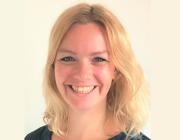Marlies Oostland is Assistant Professor in Cellular and Circuit Neuroscience at the Swammerdam Institute for Life Sciences at the University of Amsterdam. She is currently studying the neuronal computations in the cerebellum and connected forebrain areas underlying cognition, including learning, working memory, and play.
Previously, she was a Marie Skłodowska-Curie Fellow in the lab of Michael Häusser at University College London, the lab of Sam Wang and BRAIN COGS at the Princeton Neuroscience Institute, and the lab of Michael Brecht at the Humboldt Unviersity Berlin.
Marlies Oostland completed a Master’s degree in Neuroscience at the University of Amsterdam (the Netherlands), which included a research project at the University of Cambridge (UK). During her subsequent doctoral training at the University of Amsterdam, she studied the role of serotonin in postnatal development of the cerebellum. Marlies Oostland then moved to the University of Edinburgh (UK) for postdoctoral research in the laboratories of Matt Nolan and Ian Duguid, where she performed in vivo whole-cell patch clamp recordings in awake behaving mice to study the role of HCN1 channels in the inferior olive. In another project, Marlies Oostland used silicon probes to record place cells from mice performing a behavioral task in a virtual reality environment. For a next postdoctoral project, she joined the lab of Prof. Sam Wang at the Princeton Neuroscience Institute, where she was also part of BRAIN COGS, a 7-lab collaboration studying decision-making. As part of her Marie Skłodowska-Curie Fellowship, she was part of the multi-lab team developing tools to analyze in vivo electrophysiology data from cerebellar recordings in the lab of Michael Häusser at UCL.

